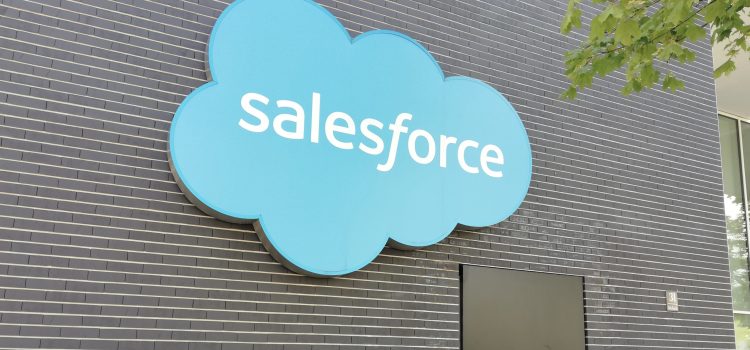

This article is an excerpt from the Shortform book guide to "Trailblazer" by Marc Benioff and Monica Langley. Shortform has the world's best summaries and analyses of books you should be reading.
Like this article? Sign up for a free trial here.
What is Salesforce’s business model? What principles do the company follow?
According to Marc Benioff, it’s not enough for a company to simply have principles—it must also practice those principles consistently and benefit all its stakeholders. His company, Salesforce, practices principled business in two ways.
Keep reading to learn more about Salesforce’s business model and the principles it upholds.
How Salesforce Foregrounds Its Principles
Salesforce’s business model prioritizes four key moral principles: service, advancement, inclusivity, and confidence. Let’s discuss how the company has translated each of these principles into action over its history.
How Salesforce Provides Service
Benioff says that Salesforce provides two major forms of service to its customers: First, it gives customers access to software that helps them more effectively manage their business and pull through tough times. For example, Benioff describes how Salesforce client Home Depot suffered after the 2007-2008 financial crisis because consumers no longer had the disposable income for home renovations and were turning to cheaper, more convenient alternatives like Amazon. To overcome these challenges, Salesforce designed software for making online sales as well as communications software for employees, which enabled them to share expert knowledge and therefore enhanced the unique value Home Depot offered to its customers.
The second way Salesforce provides service is via Dreamforce, its annual stakeholder conference. Dreamforce features entertainment, health-enhancement experiences like guided mindfulness practices, skill-building seminars and workshops, and educational discussions and speeches on the intersection of technology and social issues by notable people like Michelle Obama. Altogether, these activities contribute to attendees’ well-being and personal development, empowering them to cultivate a holistic approach to professional growth while fostering connections, insights, and inspiration that extend far beyond the realm of technology.
How Salesforce Pursues Advancement
To continue meeting customers’ ever-evolving needs, Benioff says Salesforce is dedicated to making technological and social advancements. He explains that three people influenced his decision to prioritize this principle: First, his grandfather, a lawyer and local politician responsible for the advent of Bay Area Rapid Transit (BART), instilled in him the importance of contributing to social causes. Second, before Benioff founded Salesforce, he worked at a company that then-Secretary of State Colin Powell challenged to donate resources to underprivileged youth. Third, Apple’s founder, Steve Jobs, told him that Salesforce needed to invent new technologies to stay relevant in a rapidly changing market.
In addition to the educational value Salesforce provides via Dreamforce, the company aims to advance global society by providing educational opportunities for a variety of people, including students, professionals, and marginalized communities. For example, its online learning platform Trailforce trains professionals for competency in emerging technologies such as AI, Vetforce provides job training to veterans, and other programs give schoolchildren access to technologies and mentors. Benioff says that by ensuring individuals have access to the resources they need to thrive in the digital age, Salesforce closes the skills gap that contributes to social inequality (and therefore to global conflict) and promotes economic development.
How Salesforce Practices Inclusivity
Benioff says that once he became aware of Salesforce’s shortcomings with regard to gender inclusivity, he took decisive action to transform the company into a more gender-egalitarian workplace. This began with the Women’s Surge program, which aimed to increase the number of women working at Salesforce and continued with efforts to standardize pay and promotion tracks for gender parity. In addition to these structural changes, Salesforce invests in education and awareness, offering workshops and training sessions to help managers and employees unlearn unconscious bias—a type of automatic, unintentional prejudice that can lead to inequitable treatment—and foster a more inclusive workplace culture.
Benioff explains that Salesforce also pursues racial, religious, and LGBT inclusivity in several ways. For example, after speaking to a Black employee who told him she felt Salesforce didn’t take inclusivity seriously enough, Benioff appointed a Chief Equality Officer to address that. Salesforce also donates resources, including employee time, to causes that train minority students in computer science competencies, and it makes an effort to hire a greater number of underrepresented minority employees through its recruitment programs. Finally, Salesforce encourages minority employees to connect with each other by creating safe, identity-based discussion groups.
How Salesforce Promotes Confidence
According to Benioff, it’s vital that all stakeholders have confidence in Salesforce, its leaders and employees, and each other. He learned this primarily by witnessing other companies undergo public crises of confidence—for example, Salesforce helped Toyota recover from the controversy that ensued when it knowingly failed to address safety issues with vehicles it manufactured, and Google suffered from mass public disapproval due to executives’ inappropriate handling of sexual harassment issues. Benioff also reasons that this confidence gives Salesforce a competitive edge—the company is more likely to attract and retain customers and employees if it has their confidence.
The primary way that Salesforce inspires stakeholders’ confidence is via accountability supported by transparent communication. Benioff says this often happens in relatively small ways—for example, executives livestream some of their meetings so that all employees have access to important company information, and the company has a website customers can consult to find out about the current operational status of Salesforce products and services, including any incidents or maintenance activities that may affect their availability.
How Salesforce Meets Its Stakeholders’ Needs
Recall that principled business is a form of stakeholder capitalism, which means businesses that take this approach must meet all their stakeholders’ diverse needs. Let’s explore how Salesforce satisfies the interests of three major groups of stakeholders: employees, society, and the environment.
Fostering Employee Wellbeing
Benioff explains that Salesforce takes pains to foster employee wellbeing because vibrant employees are more engaged and productive, so they can better support the company’s principled business efforts. In his view, Salesforce employees comprise the company’s “ohana” (the Hawaiian word for family—Benioff says he feels connected to Hawaiian culture because he’s vacationed there his whole life, so he infuses Salesforce with aspects of it). Let’s discuss two measures Salesforce uses to make employees feel like family: paid volunteerism and opportunities for mindfulness.
Addressing Social and Environmental Needs
Benioff considers society and the global environment two of Salesforce’s chief stakeholders. One way Benioff says Salesforce meets societal needs is through its 1-1-1 program: In addition to promoting employee volunteerism, Salesforce Foundation donates 1% of its money and resources like computers to communities in need. It also encourages other corporations to follow suit via its Pledge 1% campaign. As for the environment, Benioff says Salesforce is improving the sustainability of its operations and donates employee time to environmental causes.
Benioff also explains that as the impactful leader of a large, successful corporation with a wealth of resources at his disposal, he feels compelled to proactively address stakeholders’ problems in his personal life. This compulsion has led him to take personal responsibility for addressing social and environmental problems—he hopes that by demonstrating the power CEOs have to steward society and the environment, he’ll set an example for other business leaders and inspire them to get involved. He’s involved in traditional philanthropy—for example, he founded the Benioff Ocean Initiative to fund marine conservation research—which is common for CEOs, but he takes his responsibility a step further by campaigning for political change.

———End of Preview———
Like what you just read? Read the rest of the world's best book summary and analysis of Marc Benioff and Monica Langley's "Trailblazer" at Shortform.
Here's what you'll find in our full Trailblazer summary:
- What “principled business” means and why it matters to you
- The priority that Salesforce—a Fortune 500 company—puts before profit
- How capitalism can look different in the future






